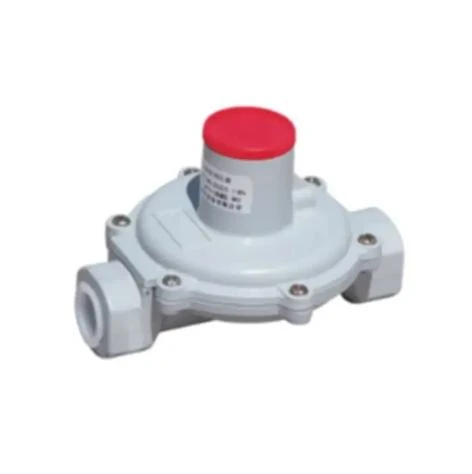
Dec . 21, 2024 00:10
Back to list
pressure reducer
Understanding Pressure Reducers Essential Components in Fluid Systems
In various industrial, residential, and commercial applications, the management of fluid pressure is crucial for safety, efficiency, and functionality. One of the pivotal components in ensuring optimal fluid flow and preventing damage from excessive pressure is the pressure reducer. This article delves into the concept of pressure reducers, their importance, how they function, and their applications across different sectors.
What is a Pressure Reducer?
A pressure reducer, also known as a pressure regulator, is a device used to reduce the input pressure of a fluid (liquid or gas) to a desired output pressure. By ensuring that the downstream pressure remains constant, pressure reducers play a vital role in various systems, from water supply networks to gas distribution and pneumatic systems.
How Do Pressure Reducers Work?
The primary function of a pressure reducer is to moderate the pressure of a fluid system. When a high-pressure fluid enters the pressure reducer, the mechanism within the device adjusts the flow, thus lowering the pressure to a predetermined level before it exits.
The construction of a typical pressure reducer features a diaphragm or a spring that responds to the pressure difference. When the inlet pressure exceeds the set point, the diaphragm or spring compresses, which then allows for a controlled flow of fluid, effectively lowering the output pressure. Conversely, if the downstream pressure drops below the desired level, the mechanism allows more fluid to flow, thereby maintaining stability.
Importance of Pressure Reducers
1. Safety One of the paramount reasons for using pressure reducers is safety. High-pressure systems can be dangerous; excessive pressure can lead to catastrophic failures, including explosions or leaks. Pressure reducers significantly mitigate these risks by maintaining safe operating levels.
2. Efficiency By regulating the pressure within fluid systems, pressure reducers contribute to enhanced energy efficiency. Many industrial processes require a specific pressure range for optimal operation, and maintaining that pressure can reduce energy consumption and improve overall system performance.
pressure reducer

3. Equipment Longevity The longevity and durability of equipment are heavily influenced by maintaining appropriate pressure levels. High pressures can lead to rapid wear and tear on components, resulting in increased maintenance costs and downtime. Pressure reducers extend the life of machinery and reduce operational costs.
4. Flow Control In many applications, the precise control of fluid flow is essential. Pressure reducers facilitate this by creating a consistent output pressure, which is critical in processes such as chemical mixing, irrigation systems, and HVAC installations.
Applications of Pressure Reducers
Pressure reducers are utilized in a myriad of applications across different sectors
- Residential Use In home plumbing systems, pressure reducers ensure that incoming water pressure does not exceed safe levels, protecting plumbing fixtures and appliances from damage.
- Industrial Process Control In factories, pressure reducers are vital for processes requiring precise pressure settings, such as chemical manufacturing and gas processing. Their ability to maintain constant pressure is integral to process stability and product quality.
- Medical Applications In the medical field, pressure reducers play a crucial role in gas delivery systems, such as those used for anesthesia or oxygen therapy. Consistent gas pressure is essential for patient safety and the efficacy of treatment.
- Automotive Systems Many vehicles utilize pressure reducers in fuel systems to ensure that the fuel is delivered at the appropriate pressure for optimal engine performance.
Conclusion
In summary, pressure reducers are indispensable components in a wide array of applications. Their ability to regulate and maintain pressure not only enhances safety and efficiency but also prolongs equipment life and ensures effective operation in various systems. As industries continue to evolve and seek greater efficiency and safety, the role of pressure reducers will remain critical, underscoring their importance in modern fluid management systems. Whether it is in a residential setting, industrial environment, or specialized applications, understanding and utilizing pressure reducers is essential for optimal fluid control and management.
Latest news
-
Safety Valve Spring-Loaded Design Overpressure ProtectionNewsJul.25,2025
-
Precision Voltage Regulator AC5 Accuracy Grade PerformanceNewsJul.25,2025
-
Natural Gas Pressure Regulating Skid Industrial Pipeline ApplicationsNewsJul.25,2025
-
Natural Gas Filter Stainless Steel Mesh Element DesignNewsJul.25,2025
-
Gas Pressure Regulator Valve Direct-Acting Spring-Loaded DesignNewsJul.25,2025
-
Decompression Equipment Multi-Stage Heat Exchange System DesignNewsJul.25,2025

